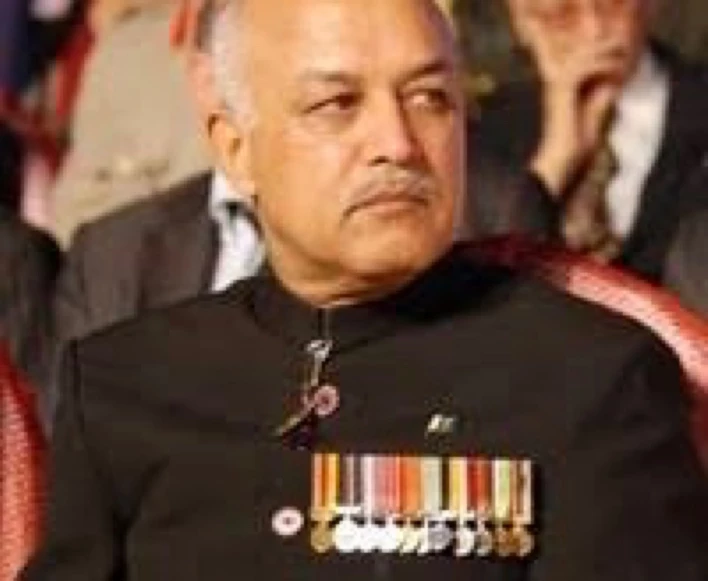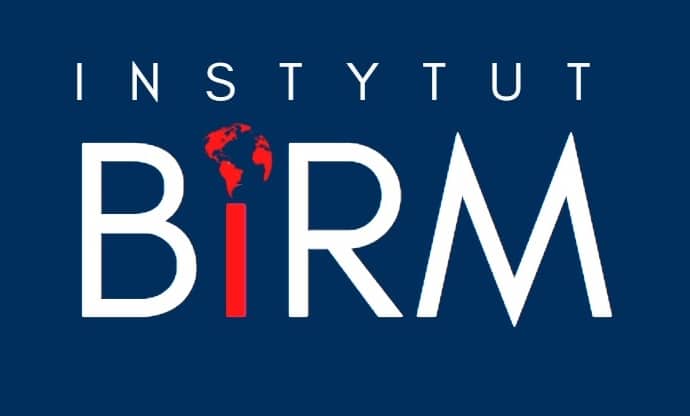RESPONSE BY LT GEN ASIF YASIN MALIK(RETD) PAKISTAN
The interview was prepared by Angelika Fortuna.

Are India and Pakistan on the Verge of a Water War? *
No not in the immediate future. However the aggressive water control policy being pursued by India is likely to aggravate the situation at some point in time. Pakistan and India are bound by terms of Indus Water Treaty signed in 1960. Under this water sharing formula and conflict resolution are spelled out but India is blatantly violating these terms by building dams and reservoirs. Such measures are creating water shortages in Pakistan which in turn are resulting in socio-economic hardship for the poor farmers.
Unless these issues are resolved amicably, the situation is likely to aggravate and cause friction between the two countries and become a cause of conflict.
Do you think military action by India against Pakistan is inevitable at this point? *
India has attempted military coercion many times in the past but Pakistan’s mature and positive handling of situations acted as a damper on the Indian design. During the last attempt the Indians massed over a million troops on our borders in 2001/2002 and stayed there for over a year. Pakistan’s very strong military posturing as well as adroit diplomatic handling of the situation forced the Indians to withdraw after suffering a major economic loss in the form of deployment cost. India has again created a crisis situation by blatant violation of Cease Fire in Kashmir and aerial incursions in Pakistani airspace by IAF. As a consequence Pakistan had to shoot down two IAF aircraft and arrest one of the pilots too when he bailed out. Again, behaving as a mature peace loving country, we returned the pilot within 72 hours and attempted to de-escalate the hot scenario.
In view of the above military action is not likely. In fact India is lost in false sense of being a global military power by trying to browbeat a country one fifth its size. Under the encouragement of US it is trying to be the regional Policeman or street bully, not realizing that Pakistan is a sovereign state with the will and all the wherewithal to protect its territorial integrity. Pakistan has a Full Spectrum Nuclear deterrence as well as capability to generate a matching response to any adventurous act by India.
Finally the situation is likely to remain precarious for the foreseeable future unless India stops acting itself or as a proxy of others to enforce an unacceptable status on Pakistan. Pakistan cannot and will not accept any pliant status that compromises its stature or harms its vital interests.
Modi recently said the time for talks has passed. Is it really too late to try and engage with Pakistan? *
The world has conveniently forgotten what sort of international pariah MrModi was before becoming India’s prime minister. In fact the US itself had banned his entry being the mastermind and executioner of a massacre of Muslims in Gujrat state, where he was the Chief Minister. During that action not only over two thousand Muslims were lynched but also hundreds of women and young girls were raped.
If one studies his profile it emerges that he is a hardcore member of RSS the militant radical Hindu anti-Muslim force which has a political wing called BJP, the party presently ruling India. His vision of Akhand-Bharat means extension of Indian boundaries up to the Central Asian State, thereby including Pakistan and Afghanistan in India.
Furthermore he had made tall promises during the last elections which he has not been able to fulfil. So, now faced with challenging situation in the coming elections he is creating an appeal to the Hindu population by adopting a radical, hardline religious approach. As a part of this approach he is portraying himself as a strong leader and making the negative statement about engagement with Pakistan.
In my opinion it is never too late to engage for greater good of the people and the region. If the USA can engage with North Korea or Iran why can’t Pakistan and India? Pakistan has always showed its willingness to dialogue both bilateral as well as trilateral with third party arbitration.
Did nuclear weapons play a role in the current crisis? *
Yes possession of strategic capability by Pakistan has played a definite role in averting a war or warlike situation between India and Pakistan. Pakistan’s Full Spectrum and Credible Nuclear Deterrence has actually forced India to reverse its designs to force a military solution to a political standoff with Pakistan.
What has the international community’s role been in the current crisis? *
Actually the international community is party to the current crisis. If it had paid heed to criminal violations of Human Rights in Kashmir over the past seventy years and persecution of minorities in India, the root cause of India-Pakistan conflict could have been addressed. If india had been made to act in accordance with UN Resolutions on Kashmir the issue would have been resolved long ago. Even now by overlooking the Indian conduct the US and Europe continue to prop up India against a perceived threat from China. Moreover, to look at India as a market of 1.28 billion, the west is making the people of India as well as the region live under the specter of a nuclear war.
Fairly free from geopolitical constrictions, could South Korea-Pakistan relations go on to become a success story of Pakistan’s economic diplomacy in the next decade or so? *
South Korea and Pakistan have historic politico-economic relations. In the late sixties the Koreans took cue from Pakistan’s progress model and adopted many practices in vogue then. Today when Pakistan is economically in dire straits for giving up those very best practices, it can benefit from the South Korean model and develop its economy at a fast pace and overcome its developmental challenges.
Do you see the current leadership in India and Pakistan as capable of deescalating given the domestic pressures they currently face? *
First of all the domestic pressure on both sides is to restore peace and bring prosperity for all the people. As far as the leadership is concerned Pakistan’s new Prime Minister has expressed an equivocal desire to bring peace in the region and work for the collective good of the poor masses of India and Pakistan. His latest gesture being the release of captured Indian pilot. He has repeatedly expressed his resolve to walk an extra mile as a part of de-escalation process.
On the other side Mr Modi has followed a path of belligerence and aggression by trying to militarily browbeat Pakistan and force a one sided solution to all problems. Apart from that he refused to attend SAARC Summit in Pakistan and even didn’t allow the Indian cricket team to play with Pakistan and worst was to not allow the Indian public to watch Pakistani domestic matches on TV.
To sum up it is not the question of capability but the presence of will and resolve, based on a vision of Prosperity for All. Leaders are identified by their vision and understanding of implications of their deeds.
What happens to the Kashmir issue now? *
Kashmir issue will stay on and Kashmiris will continue to face barbaric oppression at the hand of Indian security forces. Men would continue to be killed in thousands, women will keep facing gang rape and small children would continue to be maimed by Pellet Guns used by Army and Police. They will keep struggling for their basic human right of Self Determination. If they have survived for seventy years they can for at least seventy more.
It is not blatant Indian cruelty only rather a slap on the face of so called civilized society particularly the declared champions of Human Rights and Civil Liberties. Most of the so called First World remains oblivious to happening in Kashmir thereby giving India a free hand.
If Kashmir issue remains on fire the region would remain vulnerable to a nuclear conflict which would have global repercussions and ramifications. A disaster of global dimension simmers on and awaits awareness of the powers that run the global affairs. This is a tinderbox which can ignite in a jiffy if zealots like Modi continue to behave in a brazen manner as today.
What dangers do jihadi groups present to Pakistan?
Jehadi groups, a few that are left, are a menace for Pakistan. Pakistan’s social order is vulnerable to exploitation by them for their designs. Present government of Pakistan has set on a course to tackle the issue up front. It is following a multipronged strategy by employing both direct and indirect measures. Direct by restricting the physical space and indirect by taking measures to deny ideological grounds to be used to garner public support.
Apart from that the financial infrastructure, their operating systems in the form of charities and madrassas are under scrutiny and those involved in undesirable practices are being closed or taken over by the government. On the other hand the exploitable vulnerabilities of the people in the form of poverty, poor social environment and lack of justiceare being addressed too.
Lt Gen® Asif Yasin Malik
A fourth generation soldier, Lt Gen® Asif Yasin Malik joined the Pakistan Army in 1973 as an infantry officer. He has undergone one year training in Germany and served in Saudi Arabia for two years. The general has been a Director in President’s Secretariat and Chief of Staff of a Strike Corps apart from being on the faculty of Pakistan Army Command and Staff College. He has served as the Director General Joint Intelligence and Information Operations in The Joint Staff Headquarters and a Director General in Inter Services Intelligence responsible for Counter Intelligence and Foreign Operations. His last assignment was the command of 11 Corps, one of the largest corps ever, comprising of over 160,000 troops, while this outfit was spearheading the campaign against terrorism in the north western regions of Pakistan. He completed his service and retired from active duty in Dec 11. He was appointed as Secretary Ministry of Defense in July 2012 and completed this tenure in July 2014. In recognition of his meritorious services the officer was awarded Hilal e Imtiaz (Military).
The General is a graduate of Pakistan Army Command and Staff College, has done his Masters from National Defense University Islamabad and also has a Masters degree in Strategic Resource Management from National Defense University, Washington, DC. While at the NDU Washington DC he was the Class President of the International Fellows and was bestowed the privilege of gracing the Alumni Hall of Fame in 2013, the first for a Pakistani.
The officer is presently on the boards of a number of think tanks and organizations as well as a regular invitee at strategic seminars and intellectual gatherings both at home and abroad apart from being part of Track Two Dialogues with USA, India and Afghanistan.

Dodaj komentarz